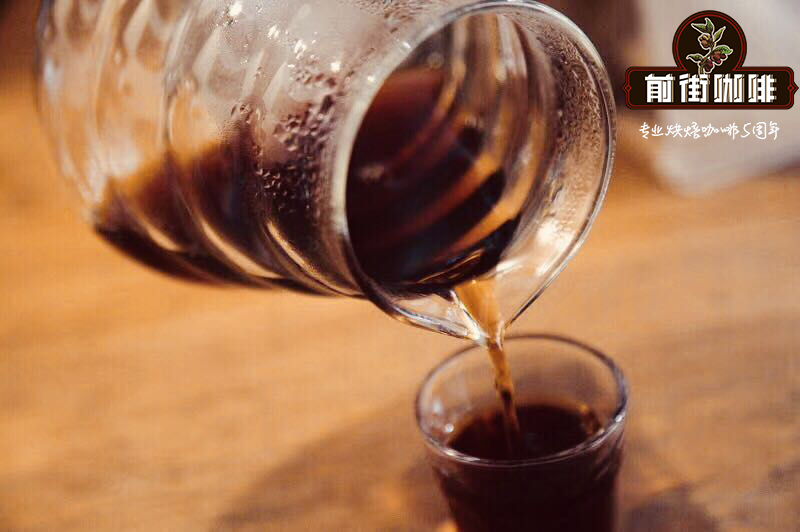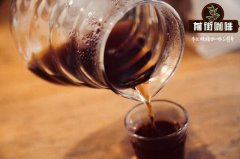What are the characteristics of Kenyan coffee brands? berries, grapefruit, sparkling water.

Professional coffee knowledge exchange more coffee bean information please follow the coffee workshop (Wechat official account cafe_style)
Qianjie-Kenyan Coffee introduction
Kenya is located in eastern Africa, the equator runs through its central region, and the East African Rift Valley runs from north to south. It is bordered by Somalia to the east, Tanzania to the south, Uganda to the west, Ethiopia and South Sudan to the north, and the Indian Ocean to the southeast. The coffee producing areas in Kenya are mainly concentrated in the plateau areas represented by Mount Kenya. Tropical climate, acid red volcanic soil provides a natural and suitable growth environment for coffee.
Kenyan coffee is mainly grown in fertile volcanic land at an altitude of 1600 to 2100 meters. The soil is rich in phosphoric acid, which gives Kenyan coffee its unique acidity and sweetness. In addition, the bourbon variants SL28 and SL34, unique to Kenya, have a delicate and elegant taste spectrum and excellent alcohol thickness. Finally, Kenya uses its rich water resources to create a double fermentation washing method, which takes at least 48 hours or even 72 hours, which is an important reason for the clean and clear taste of Kenyan coffee.
This time I will bring you a micro batch of coffee beans from Enbu. Embu is an important coffee producing area located in the southeastern slope of Kenya. The area sits at an average high altitude of 1650 meters, and nearly 70 percent of the population are small farmers. Most of the farmers grow tea and coffee. It can be said that almost all the coffee comes from local small coffee farmers. The processing plant has been in operation since 1966 and is located in the foothills of Mount Kenya at an altitude of about 1750 meters, providing post-processing coffee for coffee farmers in neighboring towns. The annual temperature of the coffee producing area is 12-25 degrees and the annual rainfall is 1600mm. As it is grown on a small farm, Enbu coffee beans are rarely seen on the market. Its taste is more similar to Neri, with the acidity of red grapefruit and blackcurrant, solid taste and a clean and long finish. Kenya's unique double fermentation washing method will improve the original acidity and cleanliness again. The fine products we usually drink in Kenya are SL28 and SL34 varieties, with rich berry tonality, solid body, high sweetness and lively acidity.
Kenya Embu Moria AA microbatch
Origin: EMBU/Mwiria processing plant
Bean seed: SL28,SL34
Altitude: 1700m
Treatment and processing method: double washing fermentation
Grade: AA
Flavor: dark berries, blackcurrant, green apple, caramel, thick and smooth taste!
Knowledge: hand-picked coffee fruit, after hand-picking, picking out immature fruit, overripe fruit and other defects, peeling, after about 36 hours of fermentation, sun-drying on a metal grid, the shell is removed in the processing plant to become a charming Kenyan raw bean with a blue-green appearance. These beautiful raw beans are graded according to particle size, shape and weight.
In short: Qianjie is a coffee research hall, happy to share the knowledge about coffee with you, we share unreservedly just to make more friends fall in love with coffee, and there will be three low-discount coffee activities every month. The reason is that Qianjie wants to make more friends drink the best coffee at the lowest price, which has been Qianjie's tenet for 6 years!
END
Important Notice :
前街咖啡 FrontStreet Coffee has moved to new addredd:
FrontStreet Coffee Address: 315,Donghua East Road,GuangZhou
Tel:020 38364473
- Prev

Which brand of Kenyan coffee tastes good? Kenyan coffee is famous for its AA quality.
Professional coffee knowledge exchange more coffee bean information please follow the coffee workshop (Wechat official account cafe_style) front street-Kenya coffee grade introduction Kenya coffee quality control is very strict, by the Kenyan government established the official unit Kenya Coffee Agency (referred to as CBK) control, established in 1933, in the capital Nairobi (Nairobi) coffee exchange for regular examples
- Next

The Best Coffee Brand in Ethiopia recommends a brief introduction to the grading system of coffee in the village of Ethiopia.
Professional coffee knowledge exchange more coffee bean information please follow the coffee workshop (Wechat official account cafe_style) front street-Rosia Village Coffee introduction Rosia Village is located in the Bench Maji region of southern Ethiopia, near the border with Sudan. In the humid forest at high altitude, the East African Rift Valley enters southern Sudan and is the birthplace of Arabica coffee (Arabica Coffee).
Related
- Beginners will see the "Coffee pull flower" guide!
- What is the difference between ice blog purified milk and ordinary milk coffee?
- Why is the Philippines the largest producer of crops in Liberia?
- For coffee extraction, should the fine powder be retained?
- How does extracted espresso fill pressed powder? How much strength does it take to press the powder?
- How to make jasmine cold extract coffee? Is the jasmine + latte good?
- Will this little toy really make the coffee taste better? How does Lily Drip affect coffee extraction?
- Will the action of slapping the filter cup also affect coffee extraction?
- What's the difference between powder-to-water ratio and powder-to-liquid ratio?
- What is the Ethiopian local species? What does it have to do with Heirloom native species?

